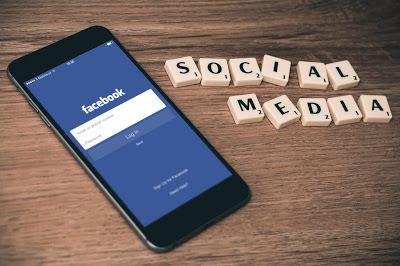Academic year
Sleep Loss in Teens Linked to Social Media

by Yamilex Batista
In this generation, teenagers are becoming so addicted and
obsessed with social media that it can potentially affect their ability to
focus in school. Instead of getting nine hours of sleep, most teenagers
dedicate their time to use social media during the night.
obsessed with social media that it can potentially affect their ability to
focus in school. Instead of getting nine hours of sleep, most teenagers
dedicate their time to use social media during the night.
According to a recent article in Media Post, 'Sleep
Loss in Teens Linked to Social Media,' a survey from the Wales Institute
for social & Economic Research revealed that one-fifth of 900 students,
ages 12 to 15 years old, reported to 'almost always' waking up during the
night. Moreover, the study found that teenage females were more likely to use
social media more often than teenage males during the night time. This
emphasizes that teenagers are developing a sleep disorder because of
uncontrollable social media use. As a result of this sleepless pattern,
students tend to feel tired and less motivated during class time, which negatively
affects their academic performance.
Loss in Teens Linked to Social Media,' a survey from the Wales Institute
for social & Economic Research revealed that one-fifth of 900 students,
ages 12 to 15 years old, reported to 'almost always' waking up during the
night. Moreover, the study found that teenage females were more likely to use
social media more often than teenage males during the night time. This
emphasizes that teenagers are developing a sleep disorder because of
uncontrollable social media use. As a result of this sleepless pattern,
students tend to feel tired and less motivated during class time, which negatively
affects their academic performance.
The article also links social media to sleep disruption by
referring to the study at the University of Pittsburgh School of Medicine.
However, this survey aimed to target adults ages 19 to 32 within the United
States instead of middle school teenagers. Out of 1,788 adults surveyed in the
study about 30% pointed out to experience sleep disturbance. The study also
pointed out that adults who were constantly using social media tended to feel
three times more tired, compared to adults who use social media at a lower
rate.
referring to the study at the University of Pittsburgh School of Medicine.
However, this survey aimed to target adults ages 19 to 32 within the United
States instead of middle school teenagers. Out of 1,788 adults surveyed in the
study about 30% pointed out to experience sleep disturbance. The study also
pointed out that adults who were constantly using social media tended to feel
three times more tired, compared to adults who use social media at a lower
rate.
However, studies in an article from the Medical Daily, 'Sleep
and Social Media: New Study Finds Link Between Facebook Use and Lack of Sleep,'
aim to indicate people tend to check social media late at night as a result of
a previous sleep disturbance. The research demonstrated that sleep disruption does
not arise from social media use during the night. The study revealed that the
use of social media during the night is increasing because students tend to use
it to control their disrupted sleep schedules. Students believe that using
Facebook during the night might help them fall asleep faster. At the same time,
students developed the habit of constantly checking social media pages or
Facebook to stay informed and to relax their mind.
and Social Media: New Study Finds Link Between Facebook Use and Lack of Sleep,'
aim to indicate people tend to check social media late at night as a result of
a previous sleep disturbance. The research demonstrated that sleep disruption does
not arise from social media use during the night. The study revealed that the
use of social media during the night is increasing because students tend to use
it to control their disrupted sleep schedules. Students believe that using
Facebook during the night might help them fall asleep faster. At the same time,
students developed the habit of constantly checking social media pages or
Facebook to stay informed and to relax their mind.
Overall, this research reveals one of the many outcomes and
factors contributing to uncontrollable social
media use. Young people in the U.S. are devoted to spending most of their
time on social media, instead of focusing in school and the real-world
environment. High use of social media or Facebook can cause sleep disruption,
but at the same time, the lack of sleep can influence to the use of social
media.
factors contributing to uncontrollable social
media use. Young people in the U.S. are devoted to spending most of their
time on social media, instead of focusing in school and the real-world
environment. High use of social media or Facebook can cause sleep disruption,
but at the same time, the lack of sleep can influence to the use of social
media.
About the Author: Yamilex is currently a Marketing Intern at
Knect365 where she assists in social media research & management, blog
writing, and various marketing tasks. She is also a student at the Renaissance
Charter High School for Innovation. She hopes to attend the University
Pennsylvania or Boston College to major in communications with integrated
marketing.
Knect365 where she assists in social media research & management, blog
writing, and various marketing tasks. She is also a student at the Renaissance
Charter High School for Innovation. She hopes to attend the University
Pennsylvania or Boston College to major in communications with integrated
marketing.
